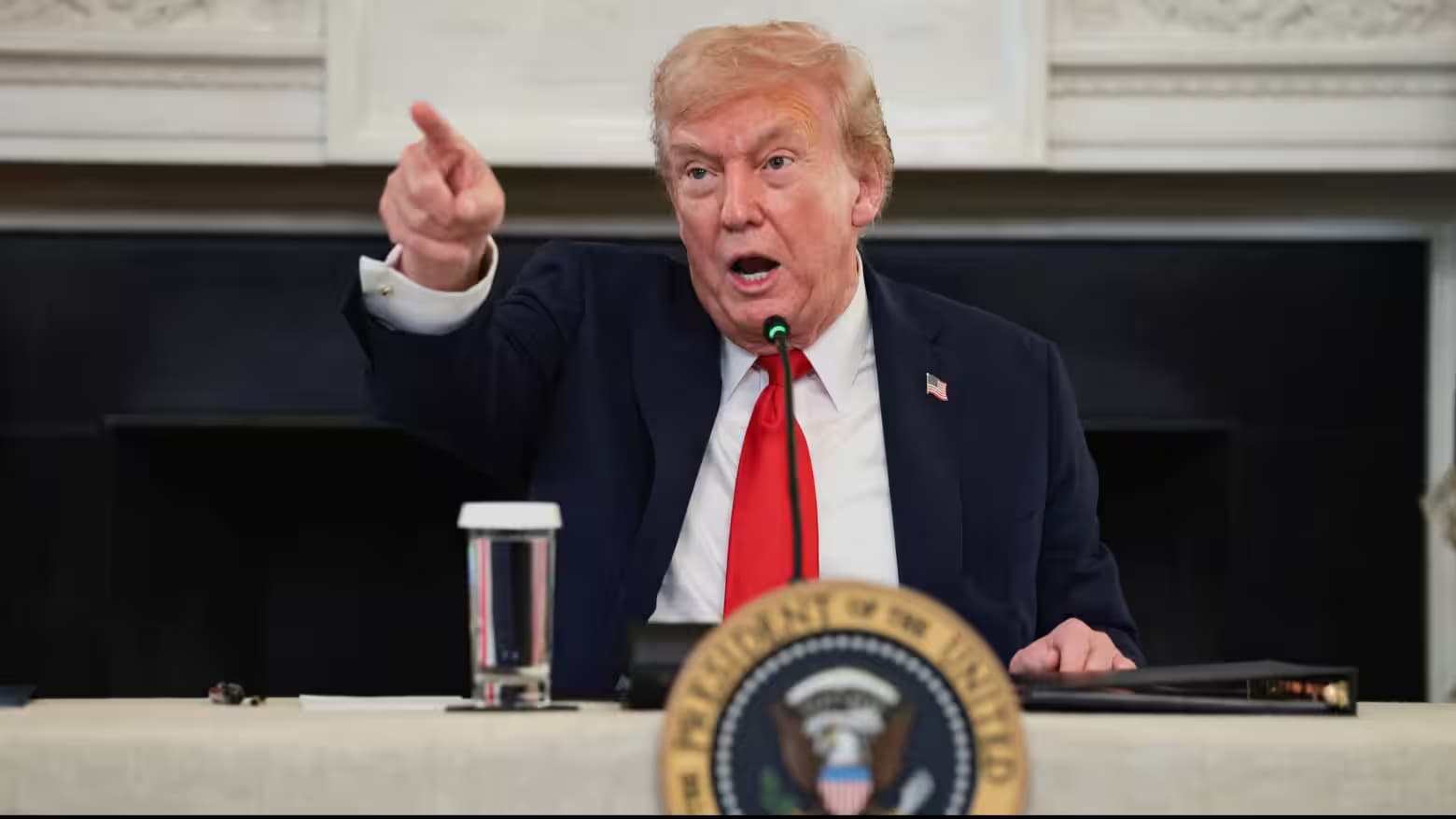We're loading the full news article for you. This includes the article content, images, author information, and related articles.
A breakthrough agreement between Israel and Hamas, brokered by the United States, offers a glimmer of hope for an end to the protracted conflict in Gaza, with implications for global stability and Kenya's diplomatic engagements.

United States President Donald Trump announced on Wednesday, October 8, 2025, that Israel and Hamas have agreed to the 'first phase' of a peace plan aimed at pausing hostilities and facilitating the release of hostages and prisoners. This development, confirmed by Hamas on Thursday, October 9, 2025, follows intensive indirect negotiations in Egypt and marks a significant step towards de-escalation in the Gaza conflict.
President Trump, in a statement on Truth Social, indicated that all hostages held in Gaza would be released 'very soon' and that Israel would withdraw its troops to an agreed-upon line. Israeli Prime Minister Benjamin Netanyahu welcomed the announcement, describing it as a 'great day for Israel' and stating that his government would convene on Thursday to approve the agreement.
The recent agreement comes after nearly two years of intense conflict in Gaza, which began with the Hamas attack on Israel on October 7, 2023. This initial attack resulted in approximately 1,200 deaths, many of whom were civilians. Israel's subsequent military campaign has led to tens of thousands of Palestinian casualties and widespread devastation across Gaza.
Previous attempts at ceasefires in late 2023 and early 2025 collapsed, with fighting resuming after an Israeli surprise attack in March 2025. The current 'first phase' deal is part of a broader 20-point framework proposed by President Trump in September 2025, which aims for a comprehensive resolution including the return of Israeli hostages, dismantling Hamas's military capabilities, and establishing a transitional governance structure in Gaza.
Kenya has consistently advocated for a peaceful resolution to the Israel-Palestine conflict, supporting a two-state solution. The Kenyan government has condemned humanitarian atrocities committed by all parties in the Middle East. In September 2024, Ambassador Ekitila Lokaale, Kenya's Permanent Representative to the UN in New York, affirmed Kenya's support for Palestinian self-determination and called for a ceasefire.
While condemning the October 7, 2023, Hamas attacks, Kenya has also decried the collective punishment of Palestinians and the destruction of civilian infrastructure by Israeli forces. President William Ruto, in October 2023, emphasized the sanctity of human life and called for dialogue and diplomacy over armed conflict.
Kenya's foreign policy prioritises peace diplomacy, recognising that regional and global stability are crucial for its own socio-economic development. The nation has a track record of mediation efforts in various African conflicts, including in South Sudan and the Democratic Republic of Congo, often leveraging its neutral stance and diplomatic influence.
Despite the announced agreement, many details remain unclear, and the challenges of implementation are immense. Previous ceasefire attempts have faltered, highlighting the fragility of such agreements. Key unresolved questions include whether Hamas will demilitarise as demanded by President Trump, and the eventual governance of the war-torn territory.
For Kenya, continued instability in the Middle East could have broader economic and security implications, including potential impacts on trade and regional security. The nation's commitment to peace diplomacy underscores its vested interest in a lasting resolution to global conflicts.
The immediate focus will be on the approval of the deal by the Israeli cabinet and the subsequent commencement of hostage and prisoner exchanges. The timeline for the release of the remaining 20 living hostages, as well as the bodies of deceased hostages, will be closely watched. Further negotiations on the more complex aspects of the peace plan, including the demilitarisation of Gaza and its future governance, will determine the long-term success of this agreement. The role of international guarantors, including the United States, Qatar, Egypt, and Turkey, in ensuring adherence to the terms will be critical.
Keep the conversation in one place—threads here stay linked to the story and in the forums.
Sign in to start a discussion
Start a conversation about this story and keep it linked here.
Other hot threads
E-sports and Gaming Community in Kenya
Active 9 months ago
The Role of Technology in Modern Agriculture (AgriTech)
Active 9 months ago
Popular Recreational Activities Across Counties
Active 9 months ago
Investing in Youth Sports Development Programs
Active 9 months ago